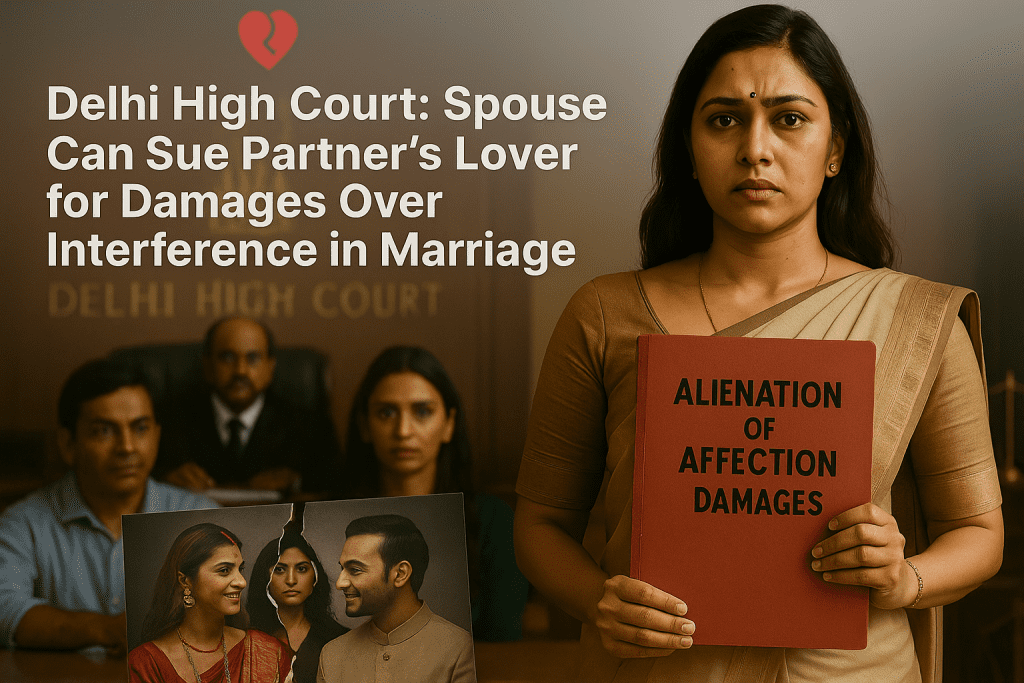Roadmap
ToggleAll About Case Law
The Delhi High Court has ruled that a spouse can file a civil suit for damages against their partner’s lover for deliberately interfering in the marital relationship. The Court emphasized the concept of alienation of affection, a civil wrong recognized in common law, and held that such an action is legally maintainable in India.
Case Background
A married woman approached the Court, filing a civil suit against her husband and his alleged lover. She argued that the third party had intentionally interfered with her marriage, causing its breakdown. The plaintiff sought damages for loss of companionship, mental suffering, and public humiliation after her husband began openly appearing with the other woman.
The defendants contended that the Family Court should address the dispute under the Family Courts Act, as it stemmed from a marital relationship. They further argued that issues of adultery were already being dealt with in the pending divorce proceedings.
Court’s Observations
The Delhi High Court rejected the defendants’ objections and clarified key legal principles:
- Third-party interference is wrongful – No one is permitted to intentionally and wrongfully interfere with a marriage to alienate the affection of a spouse.
- Civil suit is maintainable – Since the wife sought damages for tortious interference rather than matrimonial relief, the matter was rightly brought before a civil court.
- Adultery still carries civil consequences – Although the Supreme Court in Joseph Shine v. Union of India (2018) decriminalised adultery, it does not erase its civil implications, particularly when it leads to harm within a marriage.
Significance of the Ruling
The Court noted that while alienation of affection as a tort is acknowledged in Indian jurisprudence, there is very little precedent regarding awarding damages. Nonetheless, the principle remains a part of law and provides spouses a legal remedy in situations of deliberate marital disruption.
This ruling marks a significant development by opening the door for civil liability against third parties who intrude into marital relationships. While it may not restore the relationship itself, it offers a potential path to compensation for emotional and social harm.
Key Takeaway
The Delhi High Court has made it clear that personal liberty to form relationships outside marriage does not protect individuals from civil liability if such conduct deliberately destroys the marital bond of another. This decision underscores the balance between individual freedom and accountability for wrongful interference in legally recognized relationships.

